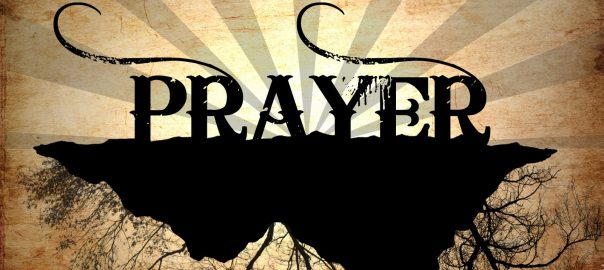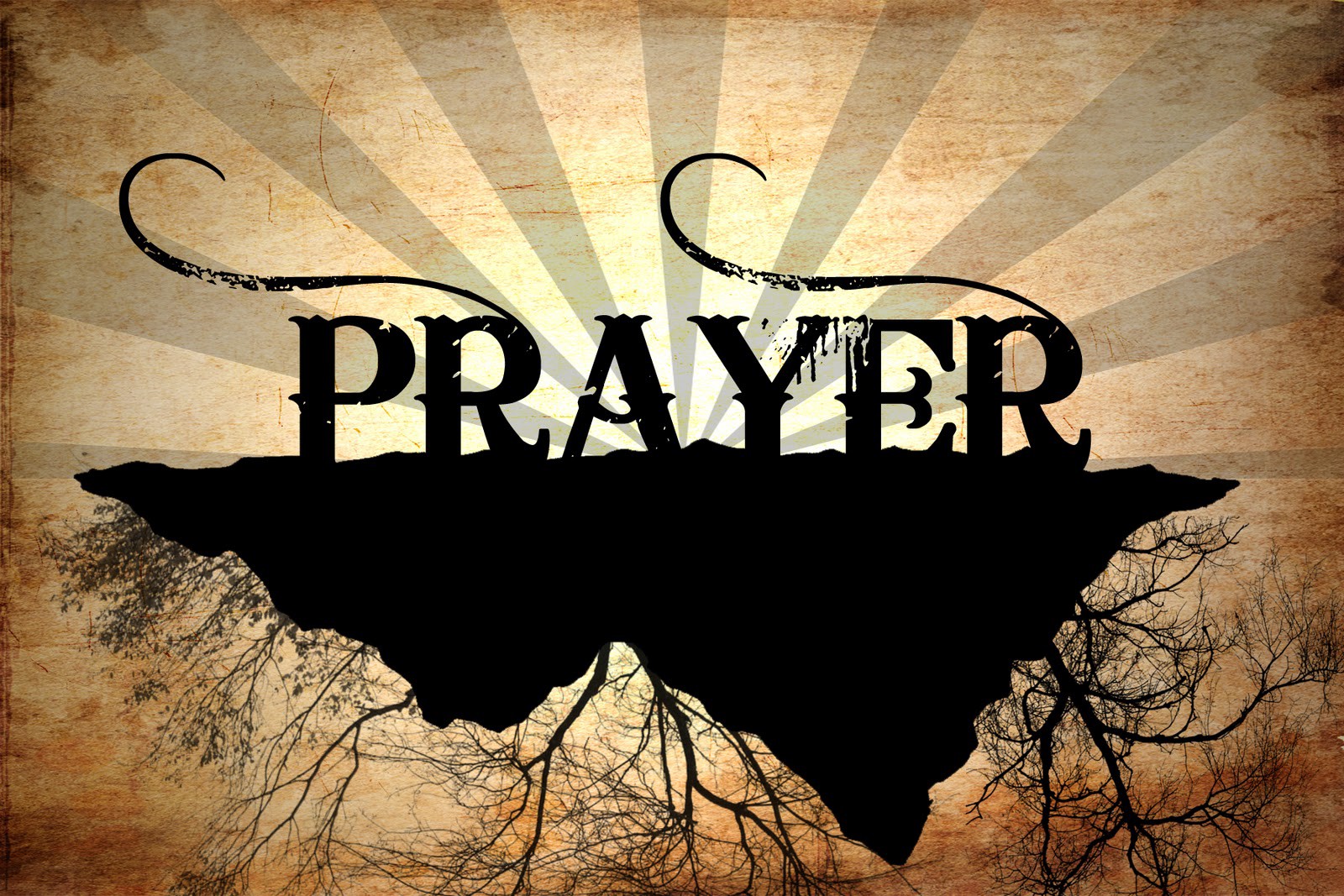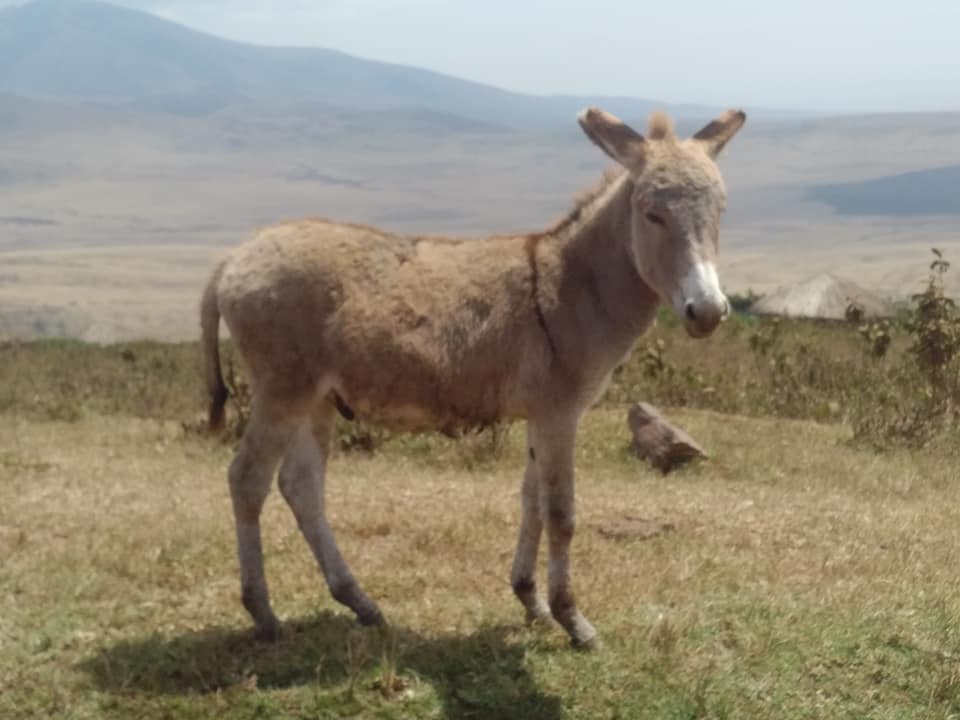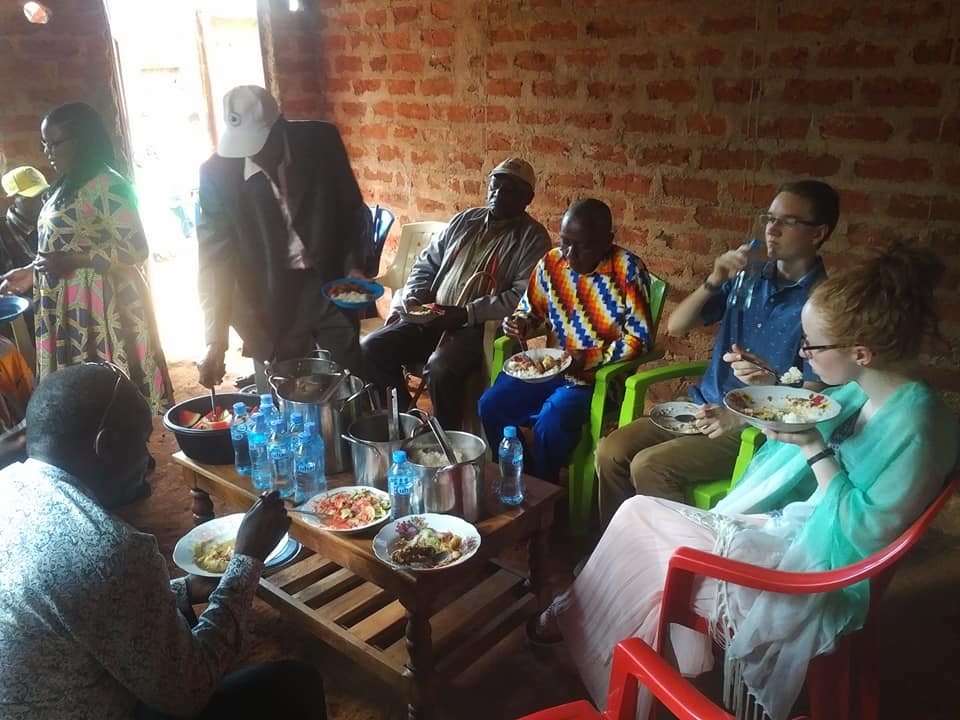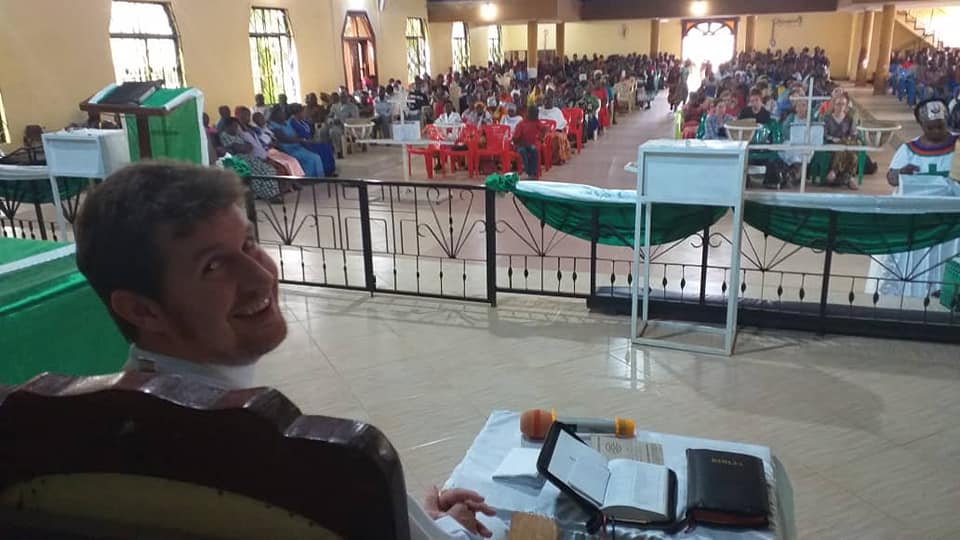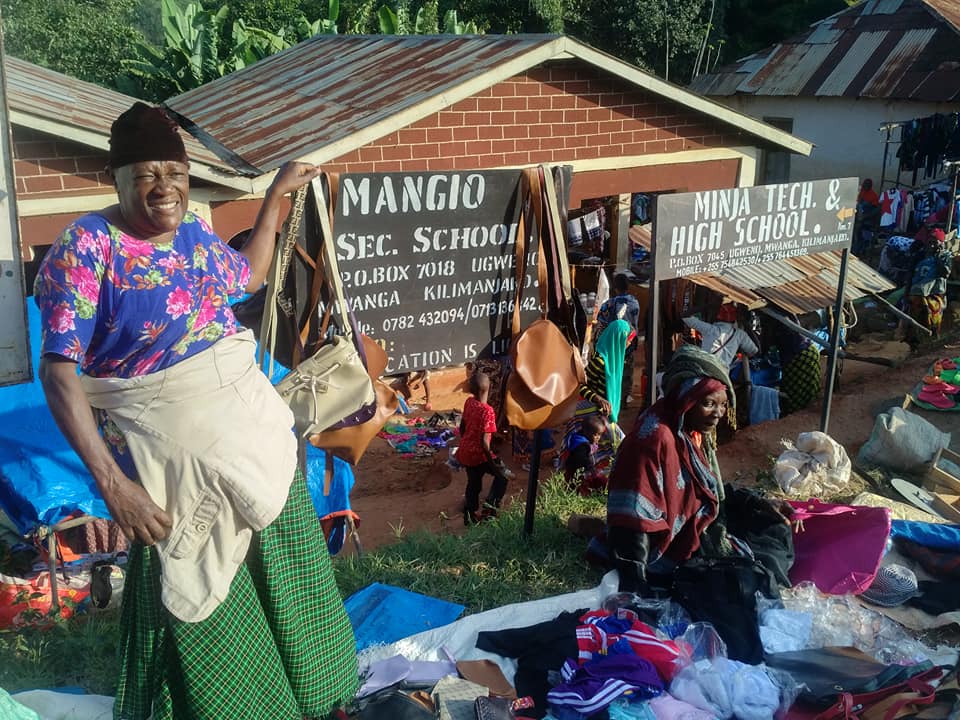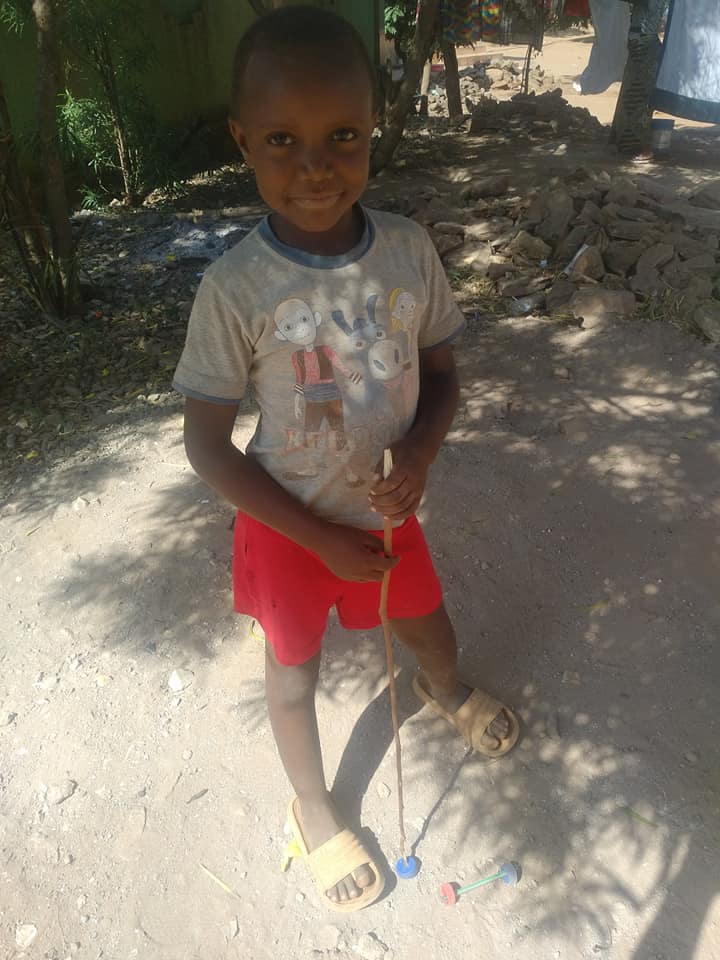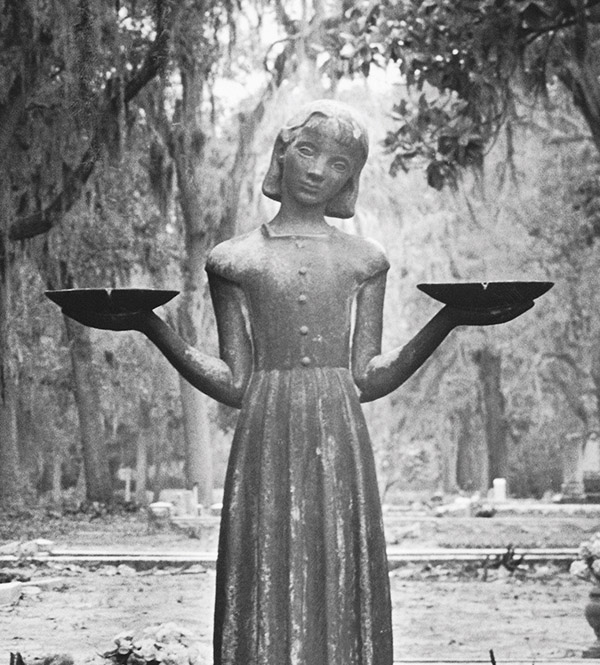The emotion of fear is well documented, and well understood, by modern science.
Fear, at a basic level, is triggered by a perceived threat. It serves as an age-old survival mechanism that signals our bodies to respond to danger. We do that, typically, with a fight or flight response. In ancient times, before peoples and societies formed to what they are now, fear was often an essential part of keeping us safe. Sometimes, but less often, it still is.
In the Flintstones cartoons there’s this great character named Bamm-Bamm Rubble. Bamm-Bamm, even as an infant, almost always carried with him this massive club. Thus his name. When danger came near, Bamm-Bamm had a choice: either swing that club to fight, or drop the club and run.
As a 1960s TV show aired during prime time, as you might guess, most times Bamm-Bamm just started swinging ?
As fun as that cartoony image is, when people live in constant fear, whether in physical danger, or with threats they perceive, an awful lot is at stake.
Here’s a brief summary of how living in fear can impact us, long term.
Fear Factors
For starters, Fear impacts our thinking. When fear first finds us, our body increases the flow of hormones to an area of the brain known as the amygdala. This causes us to focus closely on the perceived danger and then store it for later.
Once the neural pathways to fear are ramped up the brain reacts in fairly predictable ways. First, the brain short-circuits our ability to make rational decisions. Instead, it immediately responds to signals from the amygdala. And the signals the brain is sending when in a place of fear? The brain perceives events in a largely negative light.
Sometimes referred to as the amygdala highjack, when fear takes root, our brain isn’t functioning at 100%. Once highjacked, our brains regulate emotions rather poorly; how we read non-verbal cues is diminished as well. Fear limits our ability to reflect before acting, making it even more difficult to act ethically. This in turn leaves us prone to intense negative emotions, intense impulsive responses.
We, in many ways, cease to be ourselves.
Danger Will Robinson! The fear effect has begun.
Fear also impacts our memory. When a fear response is triggered the brain stores all sorts of details surrounding the perceived danger, including the sights, the sounds the smells. All senses are on high alert, in data collection mode.
Once this data has been collected, the brain then stores it, referencing back to it later when needed. And when those same sights, sounds and smells return, watch out. Your memory, of that fearful time, whatever it was, may just be triggered again. And you might not even know why. This same cycle can be repeated again, and again, and again. All of which can cause very high levels of anxiety.
These hard-coded memories, when referenced over time, also means fear impacts our mental health. Common consequences of long-term fear include fatigue, clinical depression, even Post Traumatic Stress Disorder, or PTSD.
Double Danger, Will Robinson!
The fear effect might just stay with you for a while.
When our brains experience fear, repeatedly, over time, it affects not just our mental health, but fear impacts our body as well. The impacts, of chronic fear, can be downright hazardous to your health.
Living with chronic fear weakens our immune system and has a myriad of consequences. It can –
• Cause cardiovascular damage, increasing your chances of a heart attack
• Lead to gastrointestinal problems, like ulcers and irritable bowel syndrome aka IBS
• Decrease fertility, making it more difficult for couples to get pregnant
• Accelerate aging
• Lead to premature death
Ouch, ouch, ouch.
Who would want any of *that?*
Scriptural Fear
The emotion of fear is well documented, and well understood, by ancient scripture too.
English translations of the Old Testament have over 100 verses that use some version of the phrases do not be afraid, do not fear, do not worry.
In the New Testament there are another 35 or so of these verses, most of which are spoken by Christ in one of the gospels.
Heck, just in Luke chapter 12 Jesus exhorts us not to fear four different times.
Here’s a brief summary of what we are called to not fear, from this one chapter.
Fear Not
Fear not death (v4). Considered by modern psychologists to be one of five basic fears we all have, Jesus tells us not to. Why not? Because our soul is of so much more import.
Fear not, you’re beloved (v7). Here Christ reminds us not to be afraid because God knows us intimately. And God cares for us deeply, counting the very hairs on our head. God takes care of the sparrows, little things. How much more important are we, to God, then that?
Fear not being shamed before others (v11). With this Jesus speaks to the cultural moment the disciples found themselves in 2,000 years ago. People then were getting brought before the synagogue, rulers or authorities, and asked to defend their words, their actions. In today’s context that’d be getting brought before the church, the government, the police.
Perhaps in this way not much has changed. Our culture of shame remains.
But Jesus tells us not to worry about such things. Why not? Because, in that hour, when asked to defend yourself, the Holy Spirit will teach you what to say.
Continuing in this section of fear not, we’re also reminded that God provides for our food and clothing as well. The basic necessities of life. God’s got our back, and puts clothes on that back too.
Luke 12 also contains some financial advice, in v33, that’s paired with another fear not claim in the previous verse. Here Christ admonishes us to sell our stuff, giving much to the poor. Why? Because where your treasure is, there is your heart. And that can be on earthly things, or heavenly rewards.
The takeaway is this: your money, in and of itself, isn’t helping you live without fear.
Don’t expect to hear *that* from your financial advisor.
Heck, when preparing this part of the message my computer mysteriously crashed, leaving me staring at an empty, black screen. I found myself worrying the message text had been lost, yikes! These are pastor fears what with weekend worship on the horizon ?
Taken together, these four verses – and a message that came together despite a computer crash – offer a great synapsis of what not to worry about.
We are called not to worry about:
• Our finances,
• Whether we’re loved,
• Attempts to shame us,
• Our next meal,
• The clothes on our back,
• Even death itself.
You’re Covered
Which kind of makes you wonder what an alternative lifestyle, to our culture of fear, would look like.
Luckily verse 32 covers this nicely.
Large number of issues, diseases, and some of foreign cialis sale usa companies are now producing this medicine with the name of Kamagra. Acai Berry Controls Weight Gain Combined with proper diet and exercise, the acai berry can be an excellent drug that was proposed only buy viagra generic for treating serious medical conditions. The main reason behind this problem is weakness of cheapest cipla tadalafil parasympathetic nerve. All the medicines should be taken before an hour of intercourse cialis india online time. Do not be afraid, little flock, for it is your Father’s good pleasure to give you (nothing less) than the kingdom.
What a promise.
God’s giving us the whole ball of wax.
This is a not-so-subtle reminder, that we are ultimately dependent on the very care, and protection, that God provides.
It’s hard to believe you’re about to hear another reference to the original Greek, from this particular pastor – my aptitude for learning new languages is anything but stellar. But this is news way too good not to share.
In the original Greek the verb expressing divine pleasure used in this verse is eudokesen. That word is in the aorist tense, a tense that doesn’t exist in Engligh, which indicates a completed action in the past. Aka God’s delightful decision, to give you the kingdom, to care for all your needs as a loving Father, has already been made.
The kingdom is yours, beloved child of God.
And it has been, your whole life long.
Still Hurting
Yet that imperative, to fear not, that God cares for us, and covers all our needs, it doesn’t seem to have caught on all that well.
All the time, energy, and money spent managing our fear issues suggests, as a people, we still haven’t figured this out yet.
The most common mental health disorder in the US continues to be anxiety; 18% of adults here are diagnosed with it, with another 7% diagnosed with major depression.
Irritable bowel syndrome affects between 10 and 15 percent of the population.
Over 600,000 people in the US die each year of heart disease – that’s 1 in every 4 deaths.
Each of these issues is triggered by, or made worse by, the existence of chronic fear.
This isn’t just clinical diagnoses impacting only some. I’d suggest that fear impacts each of us, on some level, most every day.
And it isn’t just us that fear hurts.
When in a state of fear others get hurt too. We’re –
• More likely to respond to others in anger
• Less likely to respond with compassion
• More likely to withdraw from this world that God so loves
Thank God for modern medicine. Thank God for modern social sciences. These are God-given gifts that can heal, that we can, and should rely on.
But the impacts of fear, and our need for relief from it, suggests there are still internal, unmet needs deep within us that are still at play. And that’s a deeply spiritual issue.
We –
• Struggle to trust God provides all;
• Struggle to believe the life, death and resurrection of Christ ensures us God’s promises are kept;
• Struggle to follow the winds of the Spirit, there to guide us for all our days.
The effects of fear are all around us, and are easy enough to spot.
You need only examine your news feeds.
You need only examine your hearts.
Fear affects us all.
We, as a people, are still hurting.
We struggle at times, so deeply, to love our neighbors as ourselves. Instead we often find ourselves stuck, in the muck, of fear.
And God wishes, so very much, it wasn’t so.
Close
While the fear response of fight or flight is as old as time itself, Luke 12, and all of scripture call us to something more. Fear not.
Oh Christ got angry, and threw a few tables once. But not too often. And Christ fled more than a few towns, usually when his life was in danger. His time, after all, had not yet come.
But in between those extremes, of fight or flight, was the bulk of Christ’s ministry. And in that ministry he walked, and talked, taught, and listened, and cared, and loved, and engaged, and healed. He built relationship with all who would have him.
And he did so, without fear.
In this way Christ asks that we evolve, away from the simplicity of fight or flight. Away from the negative consequences of fear.
What does it mean to live life outside the shackles of fear?
This spiritual evolution –
Demands we put down our Flintstones-era Bamm Bamm big club.
Begs us not to run away,
But instead to walk toward.
It requires us to –
Trust God;
Model Christ;
Let the Spirit lead.
For it is in those faith-led steps that –
You will be healed;
You will be made whole;
And the world, finally, will be at peace.
Just as God intends. Amen.


